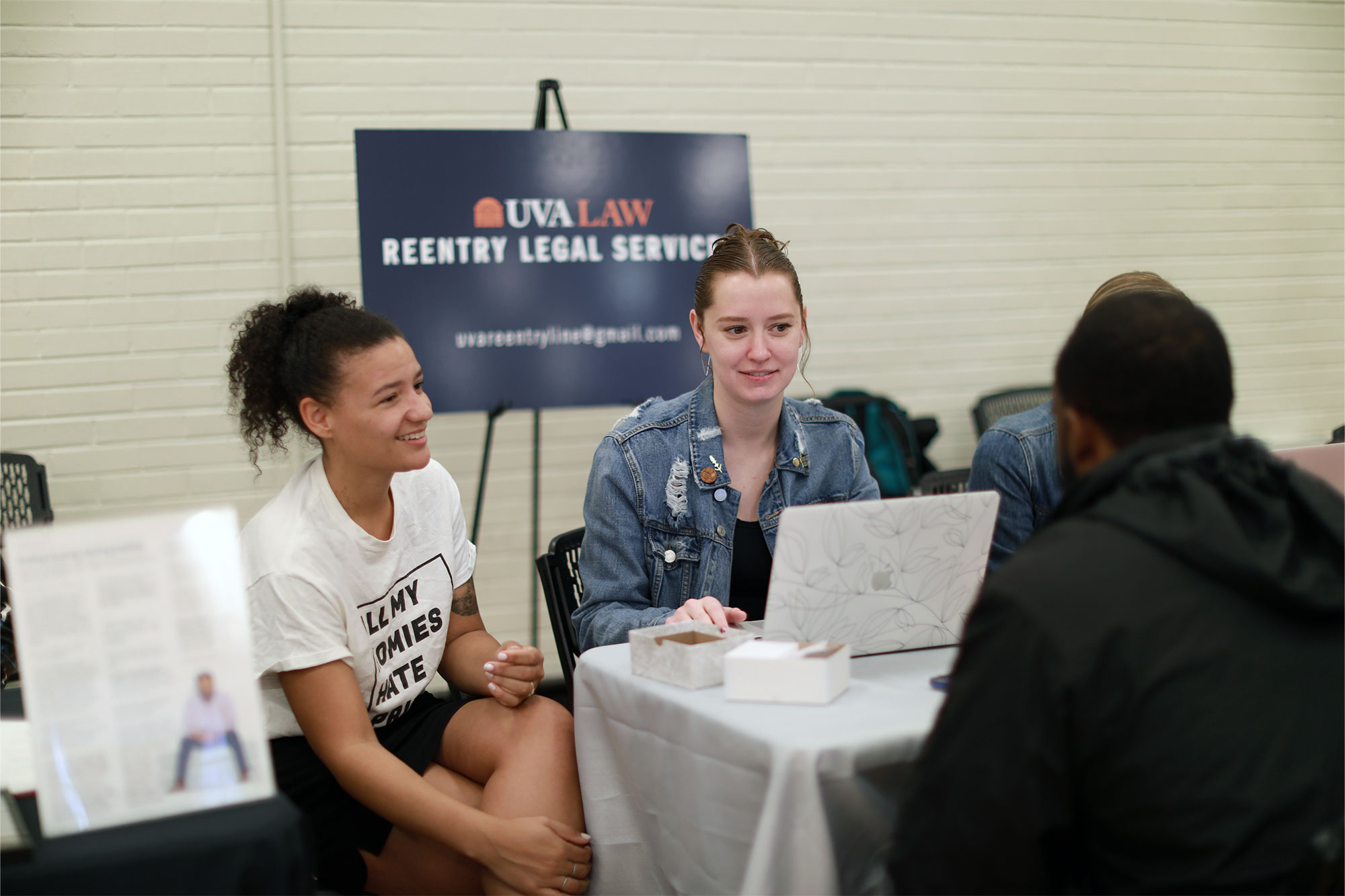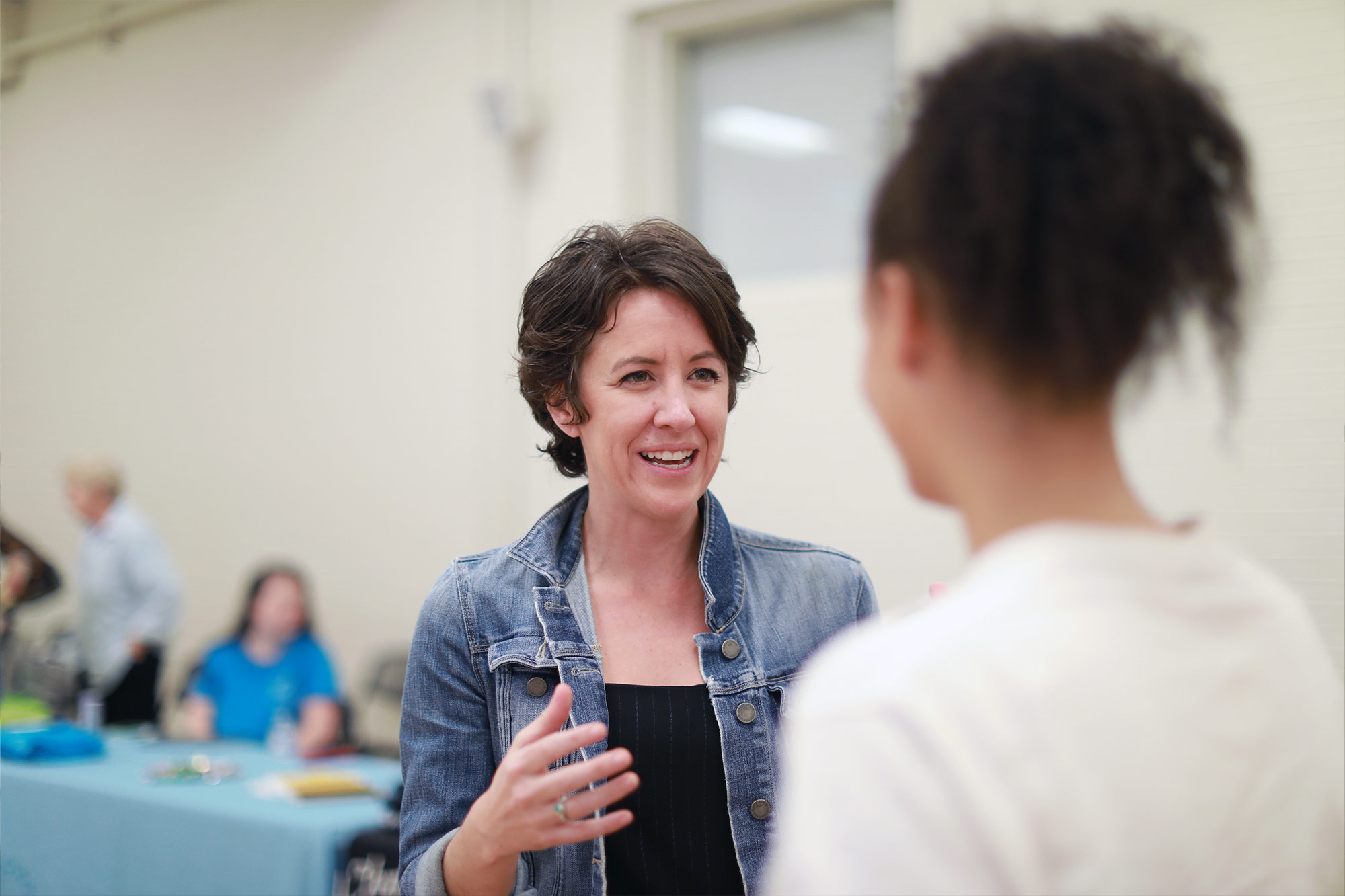On an unseasonably warm day in February, a steady trickle of visitors ambled into a Charlottesville city gym for a monthly “One-Stop Shop” reentry fair. Many were just rejoining the community after being released from prison, but the scene was one of hope and joy, right down to a rainbow-hued boom box pumping out the Pharrell Williams tune “Happy.”
At one of about a dozen tables, students from the University of Virginia School of Law were meeting with the recently decarcerated, surveying them about their most pressing needs so the students in the school’s Decarceration and Community Reentry Clinic could help them tackle the issues that can lead them back to prison. The clinic, now starting its second year, has racked up multiple recent wins under the guidance of its full-time director, law professor Kelly Orians, with additional help from pro bono student volunteers.
The survey is part-client intake and part-data collection for planning purposes, according to second-year law student Whitney Carter, who, with classmate Juhi Desai, started the Reentry Legal Helpline project within the clinic last year.
The survey identifies areas of need for the helpline project. The project currently assists with driver’s license reinstatement and acquiring valid identification and professional licenses. It helps clients manage child support debt and transfer probation or parole supervision to other states. It also assists in accessing state identification, civil rights restoration, court fines and fees, preparing for job interviews and sealing records where appropriate.
“This survey is actually how the clinic’s civil rights restoration work came about,” Carter said. “Enough people were like, ‘Hey, I need help with this,’ so that’s led to us helping people get their rights restored.”
Since the project’s inception, students have surveyed close to 60 people and created about a dozen modules to train students on these legal issues.






